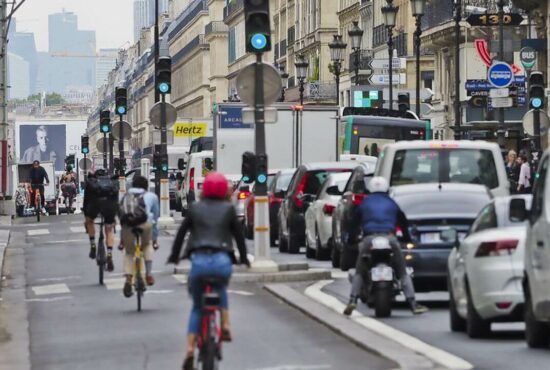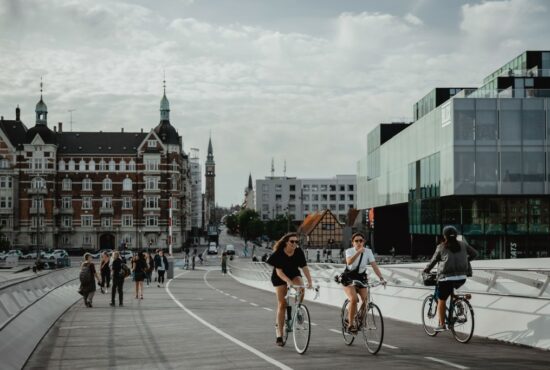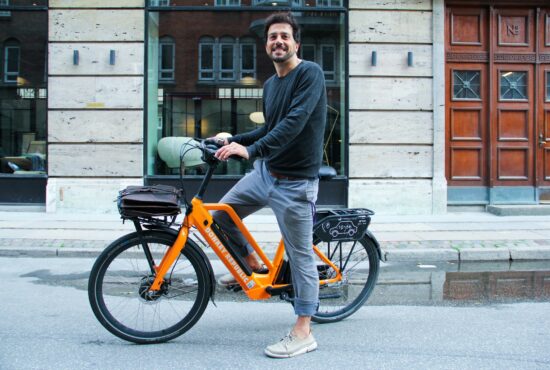“More Europeans than ever are cycling because of new bicycle lanes and infrastructure in European cities.” Jill Warren, CEO of ECF (The European Cyclists’ Federation).
What we have seen over the past year plus, is the determination of the human race to adapt. One of the key ways we have seen is by changing their view on sustainable urban transport, and cities are starting to take note. We must push policy makers on what their attitudes towards transportation like bike-sharing is, to lead to more livable cities.
With commitments from Belgium, Italy, Romania, Slovakia, Latvia and France in the hundreds of millions of Euros towards bike infrastructure and sustainable transportation, we are seeing Europe take the lead in creating more livable cities for its citizens.
Sustainable and livable cities mean more than just quieter cars and not using fossil fuel. It is how easy it is to get to your final destination with a low CO2 footprint, it’s the ease of a healthy alternative to sitting in traffic, it’s empowering the citizens to have an easy choice to make even 1 small sustainable choice each day.
Victories for Donkey and The Netherlands
One country that is taking a stand towards more sustainable cities is the Netherlands. The G4 cities in particular are striving towards more organized and clearly defined goals for this. These goals include raising the usage of bikes and other sustainable urban transport within their cities.
- Winning Licenses in Amsterdam: Amsterdam took a strict decision in 2017 to kick all micro-mobility services out of the city because of negative experiences such as scooters being left in the middle of streets. After more research, they have now made the decision to try reintroducing micro-mobility services into their cities in a more controlled and organized method. Donkey has partnered with the city with a total of 300 licenses (bikes) to show them how our model works. Including virtual parking stations, which bikes must return to across the city or fees occur if users do not obey this, which helps keep the streets clean.The city of Amsterdam is creating/adding bike parking for the added bike shares to create a dedicated space for shared mobility to make sure there is enough space for private bikes and shared bikes.
- New Steps for Utrecht: Utrecht has joined many cities across Europe and will distribute licenses as well to certain micro-mobility services based on merit. Utrecht has integrated biking into their sustainability model to such a level that individual companies, and business parks have directly partnered with us, raising the use of our bike-share and sustainable urban transport by providing different plans for their employees to make it easier for them to cycle to work.
- Growing Usage in Rotterdam/Den Haag: Going 1 step further in reaching the goals of sustainable transport being accessible, we have innovated our own system in Rotterdam and Den Haag. We have started to build a sort of biking metropolis where our system works across both cities. Since there are many commuters going back and forth we wanted riders to be able to book a bike in 1 city and park it in the other. This flexibility has led to further increasing the usage of the bikes and has made it a more integrated part of daily life.
- Maas Integration: Across the G4 cities we are seeing the Dutch ministry of infrastructure and water management pushing the development of MaaS to make an easy user experience that will promote the sharing part of mobility and creates more flexibility for traveling. In all of the G4 there will soon be a MaaS app going live with integrated Donkeys, car share, public transport and private means of transport, to give users different types of travel advice and be able to unlock and use the different modes of transportation through 1 app.
The Netherlands is just 1 example of how to plan, organize and optimize sustainable urban transport into the overall sustainability goals. It’s not just offering micro-mobility. It provides infrastructure, getting corporate companies and public institutions involved. It’s educating the public on what true sustainability is outside of electric cars and making it as accessible and easy to use as possible, because Every Ride Counts.
Resource: https://cyclingindustry.news/cycling-policy-bypassed-by-most-eu-states-in-covid-recovery-plans/



